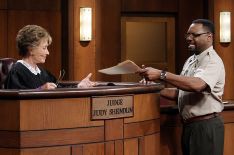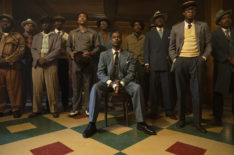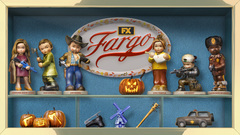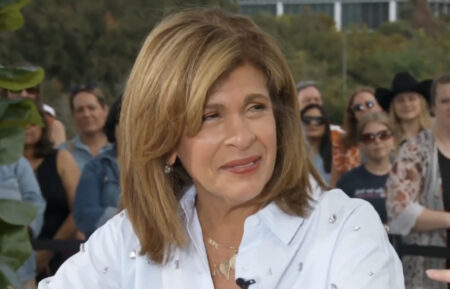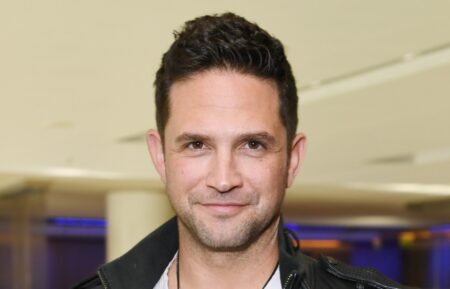Ask Matt: Judging Judy, Emmy Bias, ‘Masked Singer’ Gimmicks, ‘Fargo’ & More
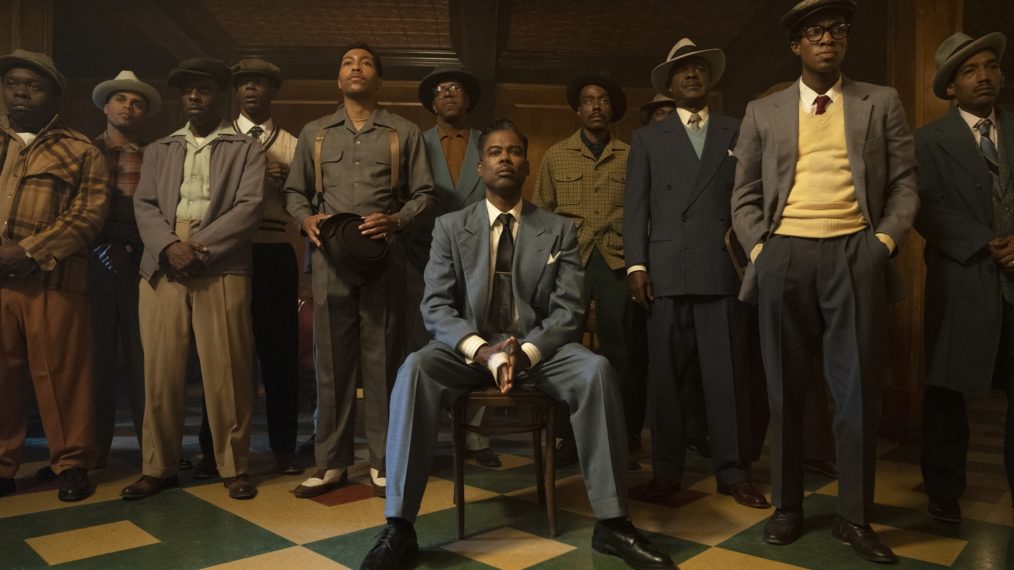
Welcome to the Q&A with TV critic — also known to some TV fans as their “TV therapist” — Matt Roush, who’ll try to address whatever you love, loathe, are confused or frustrated or thrilled by in today’s vast TV landscape. (We know background music is too loud, but there’s always closed-captioning.)
One caution: This is a spoiler-free zone, so we won’t be addressing upcoming storylines here unless it’s already common knowledge. Please send your questions and comments to [email protected] (or use the form at the end of the column) and follow me on Twitter (@TVGMMattRoush). Look for Ask Matt columns on many Tuesdays and Fridays.
Judy, and Some Game Shows, Need an Audience
Question: As a huge fan of Judge Judy, I find her lack of live studio audience to be absolutely off-putting for what should be her celebratory final season. I understand it isn’t conducive to have audience members sitting close together until we know the status of available vaccines. But the new ambience of this legendary program’s intended swan song feels downright dystopian. Why couldn’t they just wait another half-year, allowing the affiliates to fill the time slot with “best of” vintage episodes until then? It repeats really well; but also, any station worth its weight would jump at the chance to air what would be designated as her final string of fresh episodes. Yes, we all know Judy is moving on to her own new streaming program (venue TBA). And yes, we know her contract with the original Judge Judy is only for one more year. But part of the appeal of Judge Judy is the ability of a live audience (even if only filled at half-capacity) to react to the litigants’ behavior and the judge’s antics. Is this really how it’s going to end?
And I can’t even imagine how programs with even bigger live studio audiences, such as The Price is Right and Let’s Make a Deal, would find a way to mitigate the health risks — even if they wait until spring or summer to go back into production! It’s been easier for Wheel of Fortune and Jeopardy! to adjust, because the main trio of contestants is the focus rather than the audience. But Drew Carey and Wayne Brady (and their excited contestants) literally FEED OFF OF their live audiences. Are these shows just indefinitely “on hold” until we know more about the virus? — Dianne
Matt Roush: You know a lot more about Judge Judy than I do, and I get where you’re coming from when a favorite series looks and feels so different during the COVID era, but the show is doing the responsible thing by limiting the number of people (including extras) within the production bubble during such precarious times. I suppose the show could have delayed its return until an indefinite future, but as you no doubt know, this particular franchise is extremely lucrative and costs the affiliates a fortune to carry it. Continuing to run repeat episodes ad infinitum probably wasn’t an option. But like you, I hope some normalcy will return to TV, and elsewhere, by the time she signs off from her original show.
As for CBS’s game shows, I haven’t heard anything about Let’s Make a Deal coming back with new episodes, but The Price Is Right has begun production with some changes. There are few shows more dependent on audience interaction and participation, and social distancing on those stages would be a challenge. So it’s a good thing these shows are even more repeatable than Judy.
Will Network Shows Be More Thought Out Now?
Question: One of the major advantages of streaming shows is that entire seasons are plotted out and written in advance before even being filmed. Meanwhile, broadcast network shows seem to be written more on the fly, rarely even a few episodes in advance. Do you think that more network shows have taken advantage of the forced COVID hiatus to have more scripts written ahead of time with a more cohesive story planned for the season? — Mike
Matt Roush: The simple answer is yes, although even while virtual writers’ rooms were able to bank more scripts ahead of time during the long production hiatus, the producers were also forced to rethink how their shows would be written and produced going forward: fewer crowd scenes, less ambitious set pieces, etc. And I’d argue a few of your assumptions. While regular network episodic TV is produced closer to air than streaming series, which generally must finish an entire season — writing, producing, editing — before the show can premiere, even network series typically have season-long bibles with story arcs and character development thought out well in advance. The network production model does allow for more flexibility should certain stories and characters pop or flop as cameras roll. So I’m not sure the streaming model is necessarily always an advantage for a series when it’s produced in a bubble without sampling until the entire season is already finished.
The Emmys’ Network Bias
Question: With all of the backlash against the Primetime Emmy Awards in your recent “Ask Matt” columns, I was curious about your opinion on whether there is a bias against broadcast network programs that will never be overcome. It reminds me of how people are biased to think daytime TV is not the same quality or caliber of primetime TV. For example, do you think that Freddie Highmore and The Good Doctor would have been recognized if that program appeared instead on Netflix? — Rob
Matt Roush: This is an issue we’ve discussed at length in this column, and again, the simple answer is yes. It’s getting harder, it seems, for even the best work in network TV — especially in drama — to get sampled or noticed by the TV Academy voters, who are overwhelmed by the plethora of choices and gravitate toward premium cable and streaming TV in their nominations. I have often called out Freddie Highmore in particular, not just for The Good Doctor but also for Bates Motel previously, as a prime example of someone whose superior work in another time almost certainly would have been recognized by the Emmys.
This is the point where many who read this will respond, as they do every year, with a call to create separate categories for network vs. streaming/cable, and where I will always respond with the observation that to do so would diminish network TV even further by segregating them so they couldn’t compete against the best of their peers. To your big question, though, I’m not sure what if anything could be done to fix the situation or whether network TV, with few exceptions, will ever be taken as seriously again. (It would probably be presumptuous of me to suggest blue-ribbon nominating panels comprised of critics and other objective parties well steeped in TV, without conflicts of interest, to help narrow the field with recommendations. But it would be a start.)
The Gimmickry of The Masked Singer
Question: Are “celebrity” reality shows covered by the same guidelines/rules as game shows that feature average people? Is more gimmickry allowed? The Masked Singer seems to recruit “name” performers, who I guess want the publicity hit without the commitment. The show makes the audience feel like “a 10-time Grammy winner” was voted off first, and who is left? Only to find out it’s former child stars and lesser talents. — Dan
Matt Roush: I’m not sure I got the point of this, because The Masked Singer is essentially nothing but a gimmick, a guessing game that’s all about the reveal of which celebrity (a loose term some weeks) is wearing those outlandish costumes while they sort-of sing. I agree with you that many reveals are deflated by the “who’s that?” factor, or the “they’ve stopped this low?” realization, but I also don’t know what you mean by “without the commitment,” because regardless of their status, anyone who signs on to the show could potentially be around to the end. That sounds like commitment to me.
Fargo‘s Jukebox Predicts the Future?
Question: During the first episode of this year’s Fargo, I think I heard Roger Miller’s song, “You Can’t Roller Skate in a Buffalo Herd.” That was popular in 1966, but this season of Fargo is set in 1950. What happened? — Noel, Deposit, NY
Matt Roush: Anachronistic soundtracks are not uncommon these days — I recently was treated to rock music while watching a show set in the 1st century — and this isn’t the only piece of music played on Fargo this season that’s out of sync with the timeline. Songs like these are used to set tone and mood, in the case of the nostalgic Roger Miller song to add some wacky levity, and it’s already pretty clear that authenticity and realism are slippery concepts to this wildly entertaining franchise.
And Finally…
Question: Every year when my family watches It’s the Great Pumpkin, Charlie Brown, my dad can distinctly remember in the original broadcast on CBS that during the end credits that Linus declared, “At this same time, and station” as they flashed the CBS logo. Any truth to this, or is it an example of the Mandela Effect visiting good ol’ Charlie Brown? — Jonathon
Matt Roush: I have no reason to doubt your dad’s memory on this point. As someone who remembers watching both this and A Charlie Brown Christmas in their original 1960s broadcasts during my very formative years (I also recall the Dolly Madison and Coke branding; those were impressionable times), I wouldn’t be at all surprised if the voice of Linus was enlisted to do a CBS promo. The Charlie Brown specials were staples of the CBS lineup for many years, and to be honest, I’m still not used to them airing on ABC, which they’ve done since 2001. Some TV habits die hard.
That’s all for now. Thanks as always for reading, and remember that I can’t do this without your participation, so please keep sending questions and comments about TV to [email protected] or shoot me a line on Twitter (@TVGMMattRoush), and you can also submit questions via the handy form below. Please include a first name with your question.


